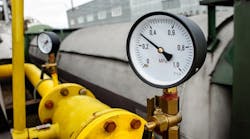How to maintain a reliable compressed air system: Key strategies and tips
Reliability is crucial in compressed air systems to ensure continuous operation and avoid costly downtime. A reliable system delivers consistent air pressure and quality, supporting efficient production processes and minimizing the risk of equipment damage or failure. However, maintaining their reliability can be challenging, as they are susceptible to issues such as leaks, contamination, and inefficiency.
This article summarizes best practices and strategies to ensure the reliability of compressed air systems, helping you optimize performance, reduce downtime, and lower operating costs.
1. Regular maintenance
Regular maintenance is essential for keeping a compressed air system reliable. Key maintenance tasks include:
- Inspecting for Leaks: Regularly check for leaks in the system, as they can waste energy and reduce system efficiency.
- Changing Filters: Replace filters according to the manufacturer's recommendations to ensure clean, high-quality air.
- Checking Oil Levels: If the system uses an oil-lubricated compressor, check and maintain the oil levels regularly.
- Cleaning Cooling Systems: Keep cooling systems clean to prevent overheating and ensure efficient operation.
2. Monitoring and Measurement
Implement monitoring and measurement practices to track the performance of your compressed air system. This can include:
- Pressure Monitoring: Regularly check air pressure levels to ensure they are within the recommended range.
- Flow Measurement: Measure air flow to identify any changes that could indicate issues with the system.
- Air Quality Testing: Periodically test the quality of compressed air to ensure it meets required standards.
3. System Design and Layout
Proper system design and layout are crucial for optimizing reliability. Consider the following factors:
- Pipe Sizing: Ensure that pipes are sized correctly to minimize pressure drop and maintain efficient air flow.
- Air Treatment Equipment: Install appropriate air treatment equipment, such as filters, dryers, and separators, to ensure clean, dry air.
- Proper Ventilation: Provide adequate ventilation to prevent overheating of compressors and other components.
4. Training and Awareness
Train personnel on the proper operation and maintenance of compressed air systems. This includes:
- Safe Operating Practices: Educate operators on safe practices to prevent accidents and injuries.
- Maintenance Procedures: Ensure maintenance staff are trained to perform regular maintenance tasks correctly and safely.
- Energy Efficiency: Raise awareness about the importance of energy efficiency and encourage practices that reduce energy consumption.
5. Energy Efficiency and Cost Management
Efficient use of compressed air can improve reliability and reduce operating costs. Consider:
- Air Leak Detection and Repair: Regularly inspect for and repair air leaks to prevent energy waste.
- Optimized Usage: Use compressed air only when necessary and consider alternative methods for tasks that do not require compressed air.
- Energy Recovery: Explore options for recovering and reusing energy from compressed air systems to reduce overall energy costs.
Conclusion
Ensuring reliability in compressed air systems requires a holistic approach that includes regular maintenance, monitoring, proper design, and training. By implementing these best practices and strategies, you can enhance the reliability of your compressed air system, improve efficiency, and reduce operating costs. A reliable compressed air system not only supports smooth operations but also contributes to a safer and more sustainable working environment.
